Middle East
Lebanon warns Hamas against attacks threatening nation’s security | Israel attacks Lebanon News
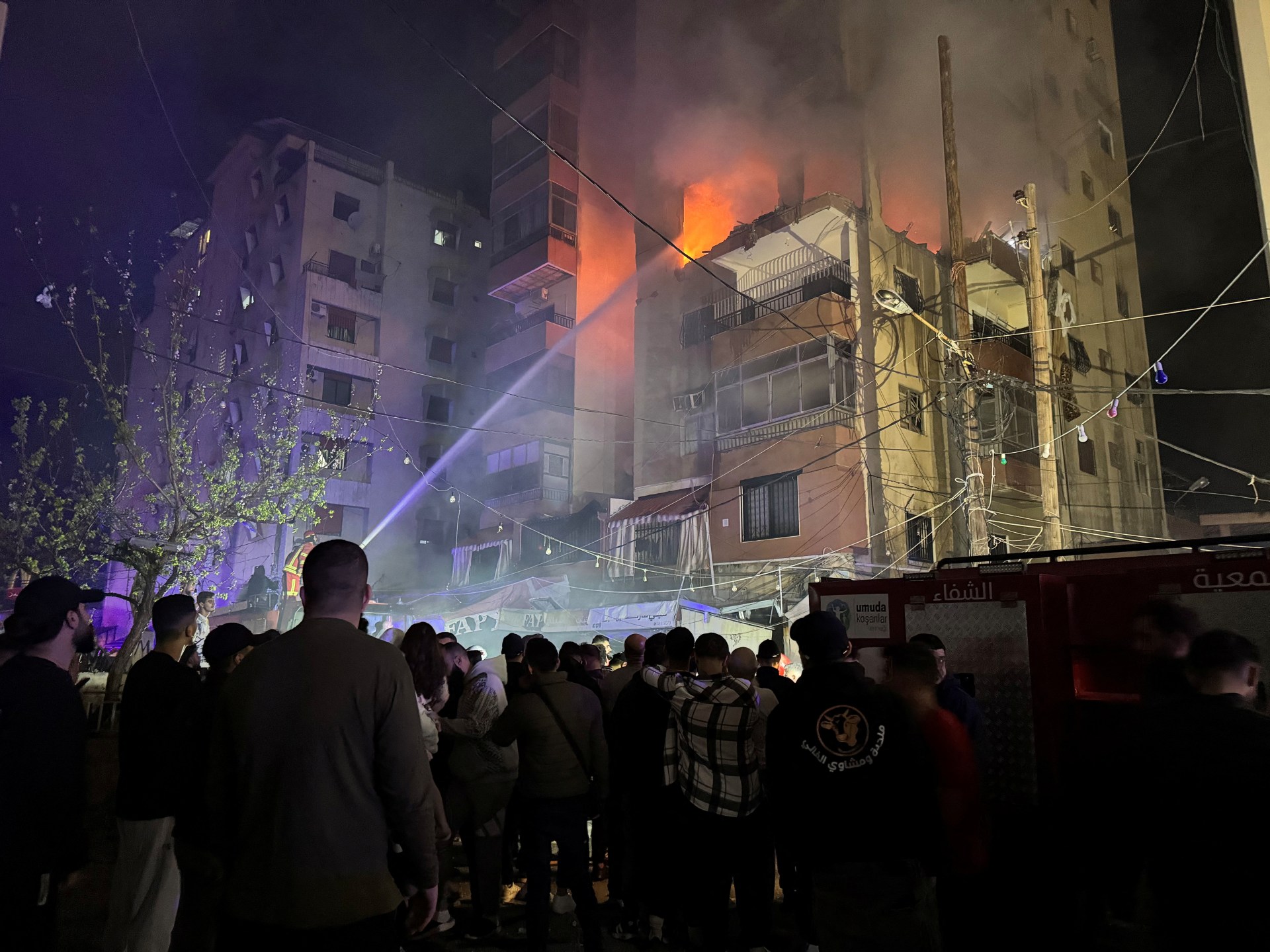
President Joseph Aoun says Lebanon must not be used as a launchpad for instability or be dragged into unnecessary wars.
Lebanon’s top security body has warned the Palestinian group Hamas against using the country’s territory for acts that could undermine national security, after rocket fire towards Israel led to counterstrikes.
The Higher Defence Council issued the warning on Friday as Lebanon faces growing United States pressure to disarm groups outside state control, following a 14-month war between Israel and the armed Lebanese group Hezbollah, an ally of Hamas.
Lebanese authorities are also trying to establish their authority throughout the country, particularly in the south near the border with Israel.
Israel has violated the US-brokered November 2024 truce agreement on a near-daily basis, according to Lebanese authorities, including three air attacks on the capital Beirut.
In a statement, the council headed by President Joseph Aoun said Lebanon must not be used as a launchpad for instability or be dragged into unnecessary wars.
It added that “the utmost measures and necessary procedures will be taken to put a definitive end to any act that violates Lebanese sovereignty.”
Aoun, who previously served as army commander, has pledged to bring all weapons in the country under the state’s authority, but has admitted that disarming Hezbollah, which the US has been pressuring Lebanon to do, is a “delicate” matter.
Mohammad al-Mustafa, secretary-general of the council, told reporters on Friday that while Aoun highlighted the importance of Palestinian rights, he also stressed that Lebanese stability should not be compromised.
Hamas has a longstanding presence within Lebanon, including in camps across the country that host hundreds of thousands of longtime Palestinian refugees, and where Lebanese security forces have long had only limited authority.
Along with Hezbollah, Hamas fighters in Lebanon fired rockets across the southern border into Israel in solidarity with Palestinians after Hamas’s October 7, 2023 attack, when Israel began a huge bombardment campaign in Gaza.
Since then, Israeli air attacks have killed several Hamas commanders in Lebanon, including the group’s deputy chief in early 2024.
Israel has cited security concerns for its continued deadly raids on Lebanon, despite the ceasefire.
In a bid to address the concerns of Israel and the US, which brokered the ceasefire, the Lebanese army arrested Lebanese and Palestinian individuals accused of firing rockets towards Israel on March 22 and March 28.
No group claimed responsibility for the attacks, and Hezbollah has denied any involvement.
But a Lebanese security source told the AFP news agency that security forces arrested three Hamas members.
The council said legal proceedings would begin early next week against those detained over the rocket fire in March.
Middle East
Iran reasserts uranium enrichment rights as further US talks delayed | Nuclear Energy News
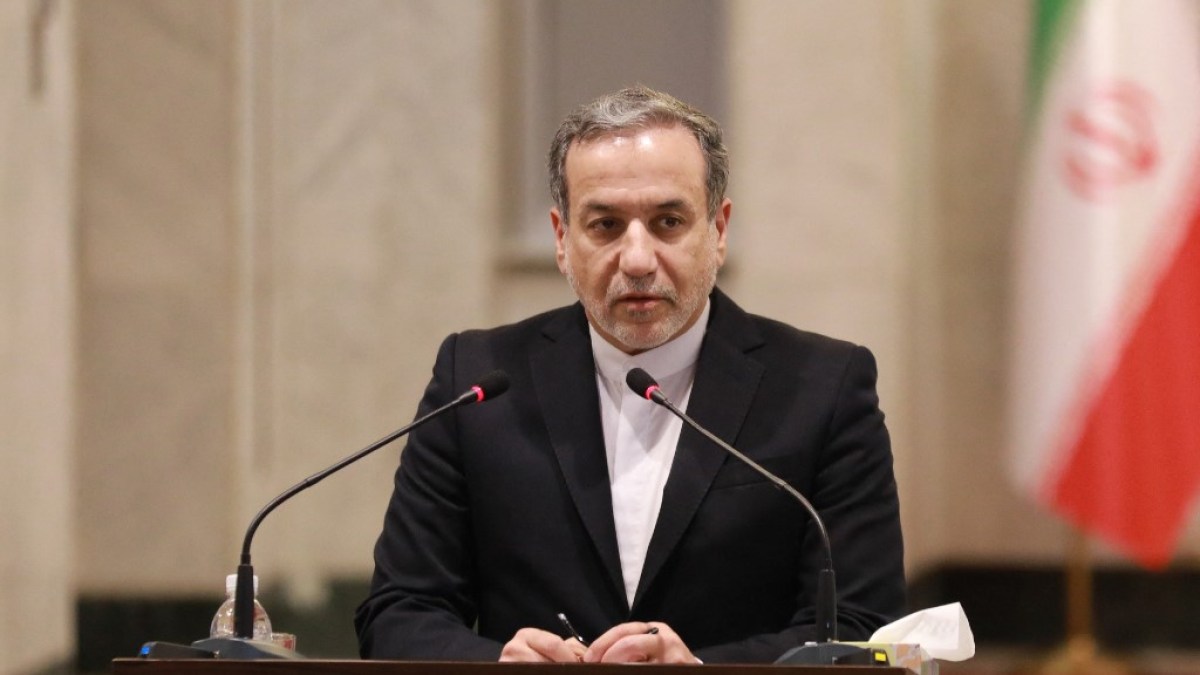
Foreign Minister Araghchi insists Iran’s nuclear activities are civilian in nature.
Iran has defended its right to enrich uranium, doubling down on a long-held stance as the next round of nuclear negotiations with the United States in Oman were abruptly delayed.
Foreign Minister Abbas Araghchi took to social media on Saturday to declare, “Iran has every right to possess the full nuclear fuel cycle,” referencing the country’s membership in the Nuclear Non-Proliferation Treaty (NPT).
He added, “There are several NPT members which enrich uranium while wholly rejecting nuclear weapons,” underlining Iran’s argument that its nuclear activities are civilian in nature.
“Maximalist positioning and incendiary rhetoric achieve nothing except eroding the chances of success,” added Araghchi, in reference to the US position that Iran must stop all enrichment activities.
In a Thursday interview with Fox News, US Secretary of State Marco Rubio urged Iran to halt its enrichment efforts, arguing, “the only countries in the world that enrich uranium are the ones that have nuclear weapons.” However, countries like Germany, Japan and Brazil also conduct enrichment without possessing nuclear arsenals.
The comments come after a fourth round of indirect talks between Washington and Tehran, originally scheduled for Saturday, was postponed.
I generally refrain from airing arguments on key negotiation elements through the media.
What I will say is that repeating falsehoods will not change basic facts. As a founding signatory to the NPT, Iran has every right to possess the full nuclear fuel cycle. Moreover, there…
— Seyed Abbas Araghchi (@araghchi) May 2, 2025
Oman, acting as a mediator, cited “logistical reasons” for the delay. A new date remains unconfirmed, with one Iranian official telling the Reuters news agency it would depend on “the US approach”.
The setback follows a new wave of US sanctions tied to Iran’s oil sales and alleged continued support for Yemen’s Houthi rebels. Tehran responded by accusing Washington of sending “contradictory messages” that undermined diplomacy.
France added to the uncertainty earlier this week when Foreign Minister Jean-Noel Barrot claimed Iran was “on the verge of acquiring nuclear weapons” – a charge Tehran dismissed as “simply absurd”.
Iran, which insists it does not seek a bomb, has consistently maintained its nuclear programme complies with IAEA oversight.
Araghchi reiterated that Iran’s right to enrich was “non-negotiable”, even as IAEA chief Rafael Grossi suggested on Wednesday that any enriched material in Iran could be either dissolved or exported if a deal were reached.
The diplomatic deadlock comes as global powers weigh whether meaningful progress can still be achieved on reviving the 2015 nuclear deal brokered by world powers, which collapsed after the US, under the first Donald Trump presidential term, unilaterally abandoned it in 2018.
The 2015 deal, known as the Joint Comprehensive Plan of Action (JCPOA) saw Iran curtail its nuclear programme in exchange for sanctions relief.
Middle East
Israeli attacks kill two more as Syria government reaches deal with Druze | News
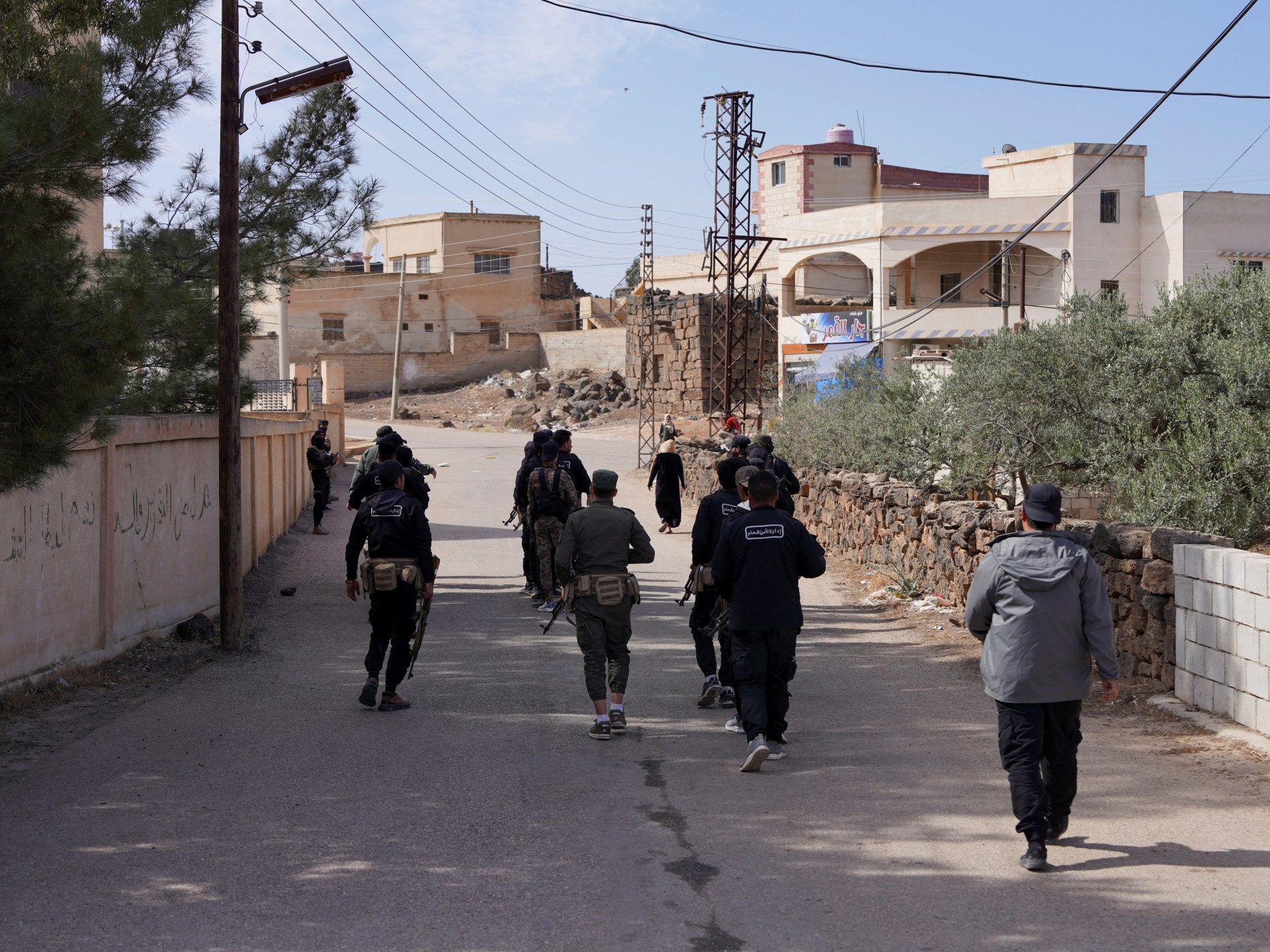
Israel has accused Syria of failing to protect the Druze as Israeli forces occupy and attack parts of the country.
Overnight Israeli air raids on Syria have killed at least two civilians as Israel has stated it is carrying out attacks to protect the Druze minority from government violence, a stance the Syrian Druze community itself rejects.
At least eight people were also reported injured after some 15 air raids hit multiple areas in Syria after midnight Saturday, with at least eight attacks hitting its capital Damascus.
The Israeli military confirmed the attacks on Saturday, saying its forces “struck a military site, anti-aircraft cannons and surface-to-air missile infrastructure in Syria” without giving further details or any evidence.
It comes a day after Israel carried out an attack near Syria’s presidential palace and Prime Minister Benjamin Netanyahu said he would not allow Syrian forces to deploy south of Damascus nor tolerate “any threat to the Druze community”.
More than 100 people were killed this week during fighting between pro-government forces and Druze fighters in Syria.
Reporting from the Damascus suburb of Jaramana where clashes took place between pro-government forces and Druze fighters, Al Jazeera’s Imran Khan said there was an uneasy calm on Saturday.
“A lot of people were in absolute fear. The fighters came in from multiple directions during the clashes on Tuesday, but they were beaten back by the security forces and then Jaramana was put under curfew for at least two days.”
He said during that time, a Druze delegation came in to reassure people that security would return.
Syrian government forces in Damascus and the Druze stronghold of Suwayda province in the southern part of the country reached agreements with Druze leaders to increase security and take in some heavy weapons held by fighters.
“A local force from the Ministry of Defence will now be responsible for security as part of the deal here and in Suwayda,” said Khan.
“But the armed fighters are said to be rogue elements of the fighting forces who were fighting the Bashar al-Assad regime that fell. That’s a real concern, because it feels to many Syrian people like elements are trying to destabilise the country by stoking sectarian tensions.”
He added that the Israeli claim of wanting to protect the Druze has been met with a lot of scepticism from the Druze community.
“They say they can deal with this issue in-house and don’t need Israel to step up. They also point to the way the Druze are regularly mistreated in Israel and how they have had their homes and communities destroyed to make way for illegal Israeli settlements. The feeling here is that the Israeli prime minister is using this to put pressure on Syrian President Ahmed al-Sharaa and attack targets in Syria.”
On Saturday, the United Nation’s Special Envoy for Syria Geir Pedersen said he “strongly condemns Israel’s continued and escalating violations of Syria’s sovereignty, including multiple air strikes in Damascus and other cities”.
The Israeli military, which continues to occupy parts of Syria, including the Golan Heights, has continued to launch attacks across the country despite international condemnation.
“Despite the challenges, the foreign threats and the Israeli planes, we are present and nothing can prevent us from protecting our people or prevent us from carrying out our duty towards our people,” Ammar al-Hariri, a commander with the Syrian security forces, said from the town of al-Soura al-Kubra in Suwayda.

Salman Olaiwi, a resident of the town, said people felt “relieved” when they heard about the agreement between the government and Druze leaders.
“What good have Israeli threats done us? The Israelis are on their own. As for us, those close to us are better than those far away.”
Middle East
Fear, pain, and a little hope: Volunteer doctors in Gaza | Israel-Palestine conflict News
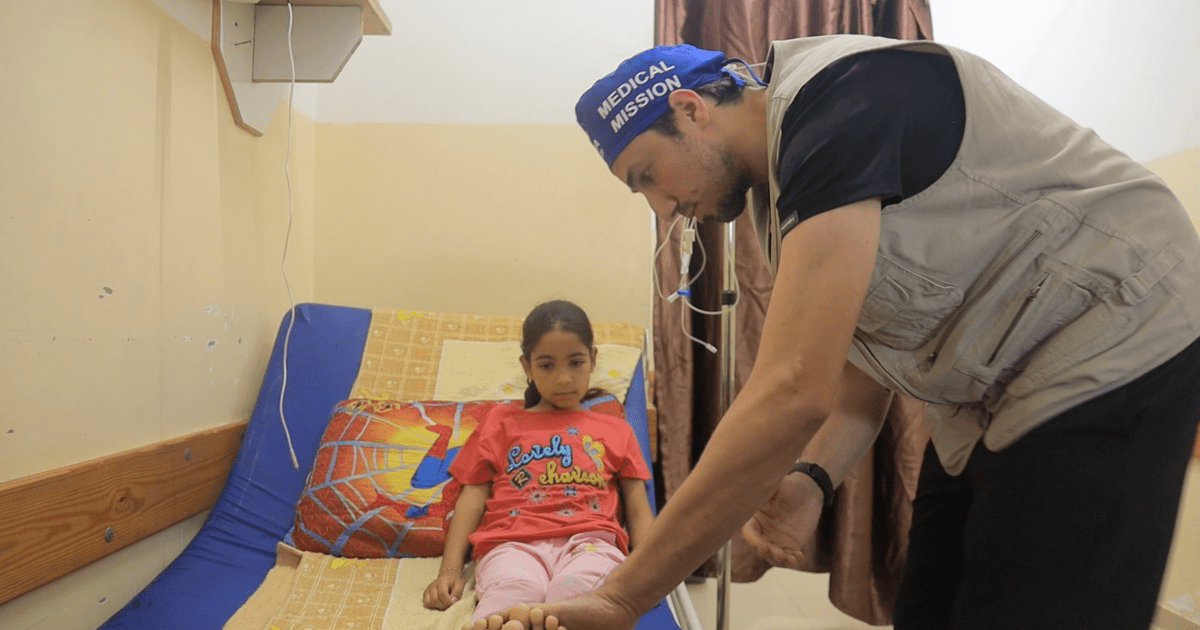
In the Nasser Medical Complex in Gaza’s Khan Younis, a volunteer doctor breaks down as he speaks of the things he has seen during his mission here.
It is impossible to get over the scenes of starving, shocked, and injured children, thoracic surgeon Ehab Massad says.
“The sight of a child standing at the door, bewildered because they have lost their entire family in a bombing, I could never forget that, ever,” he adds in a faltering voice as tears fill his eyes.
‘It will never feel like enough’
Massad is a member of a medical mission by the Rahma Worldwide organisation, one of four doctors working in Qatar to have joined.
“I feel like no matter what we do for [the people of Gaza], it will never feel like enough,” he says.
“[However] the helpless feeling of being outside Gaza and watching the news is gone now; at least I feel like I’m doing my part.”
It’s a feeling echoed by the three other doctors to whom Al Jazeera spoke. Orthopaedic surgeon Anas Hijjawi described a long line of doctors who had signed up for medical missions to Gaza, some of whom had to wait up to five months for a spot on a mission to open up.
Dr Diyaa Rachdan, an ophthalmic surgeon, struggles to keep his voice steady as he tells Al Jazeera that Tuesday was the last day of the mission and the doctors would be heading back to their respective hospitals the next day.
“But I am hoping that there will be more, longer trips to Gaza in the future,” he adds.
Their work in Gaza is not easy, but that is not the reason these doctors are sad to be leaving their mission behind. On the contrary, every day is a struggle as they try to cope with a volume of deaths, illnesses and injuries they simply do not have the equipment to address.
Israel has often prevented the entry of hospital supplies into Gaza during the course of its nearly 19-month-long war on the besieged enclave. Medical missions are not allowed to bring anything in with them.
So, the doctors struggle on with the equipment they can find, sometimes reusing “disposable” medical implements over and over, despite the danger that poses, because there is simply no other choice, Dr Rachdan says.
At the back of their minds, several doctors tell Al Jazeera, is always the thought that people in Gaza die of wounds and illnesses that would be easily treated in any other hospital that has adequate supplies.
![Dr Almanaseer reassures a young patient about the burns covering her body and face [Screengrab/Al Jazeera Mubasher]](https://www.aljazeera.com/wp-content/uploads/2025/04/Screenshot-2025-04-30-at-4.50.35%E2%80%AFPM-1746021548.png?w=770&resize=770%2C481&quality=80)
“Sometimes we can’t cover a patient or take precautions to preserve the sterility of an operating room,” Dr Hijjawi says.
“Sometimes I don’t have the right size metal plates or screws that I need to mend a limb. I’ve had to use the wrong size item … just to get them better enough that they could, some day, travel for more treatment.”
The things that happen to people in war
While doctors coming into Gaza have often followed developments there closely before arrival, nothing, they tell Al Jazeera, could have prepared them for the level of destruction the people of Gaza have to cope with.
“Words can’t describe the pain people are in here, or the level of exhaustion of the medical teams. They’ve been working nearly around the clock for a year and a half now, despite their own personal pain and tragedies,” says the fourth Qatar-based volunteer, urology consultant Mohammad Almanaseer.
There’s a tentativeness in Dr Almanaseer’s voice as he speaks of the case that has impacted him the most deeply, the story of a little boy of about two years old who was brought into the emergency room after Israel had bombed him and his family.
“The usual resuscitation attempts were made with him, but he needed immediate surgery. I was in the operating room, assisting the paediatric surgeon, but it became clear to us that the child probably wouldn’t survive.”
The child died the next morning.
“He was the same age as my son, and even had the same name. Kinan, little Kinan, may God receive you and your mother, who was killed in the same bombing, by his side.”
Injuries as extreme and urgent as Kinan’s are what the medical teams deal with day in and day out, resulting in a large swath of patients who need less urgent care and who keep getting pushed down the list.
Like the patients who have been waiting for months or years for cataract surgery, some of whom were helped by Dr Rachdan during this mission.
The people of Gaza have been forced to carry on throughout the genocidal war on their existence. This strength has inspired a sort of bewildered regard among the visiting volunteer doctors.
Dr Hijjawi tells of an afternoon chat with an operating room nurse who was explaining how he struggles to get to work every day and how he says a final farewell to his wife and children every day, because he never knows what may happen to any of them.

“Then, we heard ambulances coming in,” Dr Hijjawi continues, “and we went to muster in the emergency room. Suddenly, the OR nurse came running past us, desperately asking for an ambulance to go to his house with him because he had heard it had been bombed.
“It took some time … but they finally went out and came back with his parents, who had been killed, and the rest of his family, who had injuries among them. And, you know what? Just two days after this happened to him, he’s here, he’s upstairs working.”
The silence of the shocked
All four doctors seem to have a soft spot for their paediatric patients. It is the children’s pain that affects them the most, and it is their suffering that they will take away with them in their memories.
Al Jazeera follows Dr Almanaseer on his rounds as he visits a young girl in intensive care. She is recovering from severe burns on much of her face and body. In quiet tones, she asks him about whether she will be left with big scars from the burns.
The doctor answers her quietly and seriously, taking time to talk to her until it seems like she’s reassured for today.
Dr Hijjawi is also on his rounds, speaking to a little girl, gently examining her leg and asking her to “lift both feet off the bed for me”. Then he asks a little boy to wiggle his toes so he can check on how he’s healing.
Next is a young girl lying under a recovery blanket in a room on her own. Her right arm is bandaged, which is what he’s there to look at.
He squats on the floor near her bed and moves her arm, then each of her fingers. He’s concerned because she seems to have lost sensation in two fingers and feels the problem will have to be explored surgically, as he tells a concerned relative.
The children are quiet, wide-eyed, doing as they’re told and not saying much else.
“There’s so much they’re dealing with,’ Hijjawi says. “Being in the hospital is scary, but on top of that, so many of them are just lying there waiting, hoping, for someone to visit them – a parent or grandparent or sibling. Some of them don’t know who’s left alive from their family outside the hospital walls.
“Add all that to their physical pain, yes, they are very quiet for very long periods, or their minds seem to wander,” he says quietly.
Dr Rachdan is holding fast to one memory of Gaza’s children that he seems to want to preserve as he gets ready to leave: “One thing that I don’t think I will ever forget is the sight of the children in Gaza who continue playing, despite the destruction.
“They make paper aeroplanes, play ball, despite the tragedy they are surrounded by. I will always remember that.”
-

 Middle East2 days ago
Middle East2 days agoSyrian Druze leader condemns government over sectarian violence | News
-
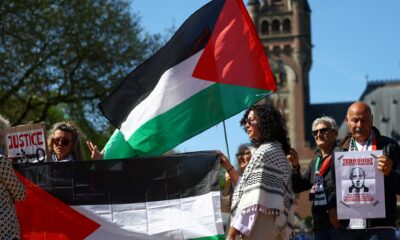
 Middle East1 day ago
Middle East1 day agoICJ hearing on Israel’s obligation to allow aid to Palestine: Key takeaways | Israel-Palestine conflict News
-

 Lifestyle2 days ago
Lifestyle2 days agoBlack dandyism etches place into Met Gala history — and global visibility
-

 Sports2 days ago
Sports2 days agoCoco Gauff hands Iga Świątek one of the worst defeats of her career to reach Madrid Open final
-
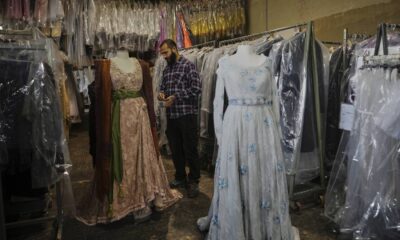
 Lifestyle2 days ago
Lifestyle2 days agoAP PHOTOS: Artists in this former pasta factory preserve Italian opera traditions
-

 Education1 day ago
Education1 day agoTrump says he will revoke Harvard’s tax-exempt status
-

 Middle East2 days ago
Middle East2 days agoDrones hit ‘Freedom Flotilla’ Gaza aid ship in international waters | Israel-Palestine conflict News
-

 Sports1 day ago
Sports1 day agoJalen Brunson game-winner lifts New York Knicks over Detroit Pistons and into second round of NBA playoffs




